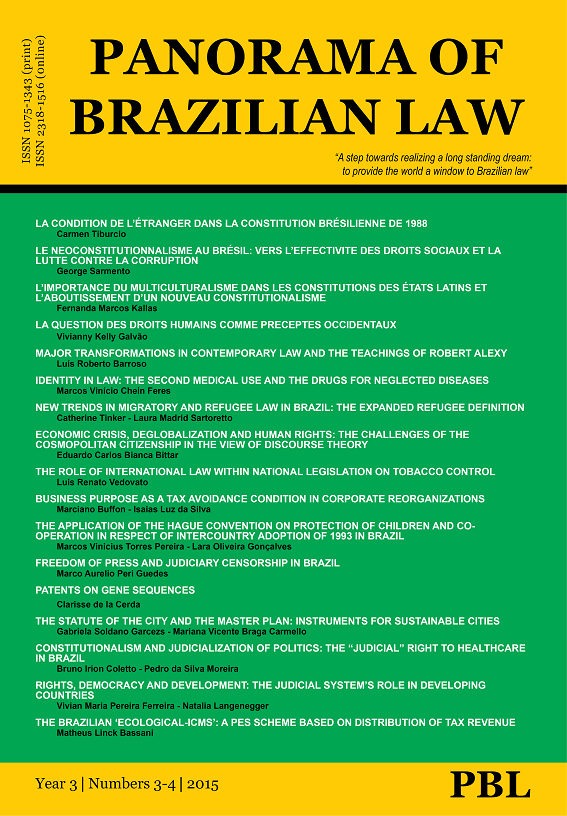NEW TRENDS IN MIGRATORY AND REFUGEE LAW IN BRAZIL: THE EXPANDED REFUGEE DEFINITION
DOI:
https://doi.org/10.17768/pbl.y3.n3-4.p143-169Abstract
This paper aims to explore new trends in Brazilian refugee and migratory law in the last 20 years. In doing so it addresses the evolution of the definition of “refugee” in Brazil, expanding the eligibility grounds provided by the 1951 Geneva Convention on the Status of Refugees (1951 Convention). Reviewing international and regional refugee law, the article analyzes the broader understanding of the notion of “refuge” and its complexity expressed in regional and national legal frameworks, taking account of lawyers, scholars and activists who criticize the narrow scope of the classical refugee definition from 1951 which has become distant from current refugee voices and struggles. At the domestic level, although the 1980 Aliens Statute (Act. n. 6815/80) is still in effect, there have been important changes in refugee law in Brazil since the implementation of the 1997 Refugee Statute (Act n. 9.474/97), influenced by the 1984 Cartagena Declaration (a regional soft law instrument) regarding the definition of “refugee”. Exploring the interconnection of the Refugee Statute and complementary forms of human rights protection which fall outside the scope of international refugee law, the article concludes that in the specific case of Haitians in Brazil, the broader protections of Brazilianrefugee law should be available rather than the complementary systemof humanitarian visas.
Downloads
Published
How to Cite
Issue
Section
License
Panorama of Brazilian Law employs Open Journal Access policies.
Authors are fully and exclusively responsible for their submissions.
Authors who publish with this journal agree to the following terms:
- Authors retain copyright and grant the journal right of first publication with the work simultaneously licensed under a Creative Commons Attribution-NonCommercial-ShareAlike 4.0 International License that allows others to share the work on a non-comercial basis with an acknowledgement of the work's authorship and initial publication in this journal and indicating if any changes were made. If you remix, transform, or build upon the material, you must distribute your contributions under the same license as the original.
- Authors are able to enter into separate, additional contractual arrangements for the non-exclusive distribution of the journal's published version of the work (e.g., post it to an institutional repository or publish it in a book), with an acknowledgement of its initial publication in this journal.

